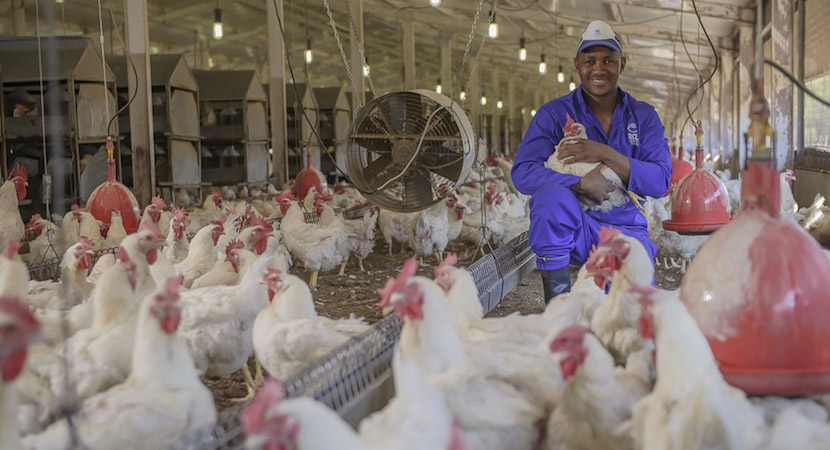By Alec Hogg
It has been a tough few years for R25bn a year RCL Foods. But there is enough in yesterday’s results for the year to end June to keep the turnaround punters interested. Until the new dawn breaks, however, management is playing its part by trimming costs and tightening up working capital.
RCL, which employs 20,000 people, was created through an amalgamation of the Remgro food businesses Rainbow Chickens and TSB Sugar, with bulk added through 2013’s acquisition of Foodcorp (for R3.9bn). Remgro owns 71% of the equity and the group has a market capitalisation of just under R15bn.

The financials for the year to end June are steady enough, but shareholders will have to continue exercising patience.
After stripping out one-off distortions of the prior year, RCL’s normalised headline earnings per share were little changed for 2017, a fact reflected in the same-again final dividend of 20c a share (to be paid on 23 October) making 30c for the full year.
This apparent calm at the earnings level belies action aplenty beneath the surface. An excellent year for the sugar division and improved numbers from the milling side offset a near collapse in the poultry business and the struggle for the branded consumer goods which comes in a stagnant economy.
Over the past couple years the group’s major challenge has been the well publicised crisis in the poultry sector caused through dumped imports and one of the worst droughts to hit South Africa in decades.
These events played havoc with the old Rainbow operation, leading to strategic decisions to trim back volumes with early results evident in the latest numbers.
In last year’s annual report chairman Jannie Durand warned that the group was being forced to “relook at all options in evaluation our Chicken business model.” He may well be writing the same thing again this year.
The chicken division’s operating profit dropped 64% to a modest R101m, hardly nudging the needle in a group that delivers R1.7bn annual EBITDA.
The most significant action taken thus far was slashing volumes in Rainbow’s frozen chicken line. This was effected by closing the sizeable Tzaneen operation and moving the original Hammarsdale plant onto a single shift.
That remedial step and a bit of nip and tuck elsewhere freed up R800m in working capital. Half of this was used to reduce debt, enabling the liquidation of a R498m revolving credit facility.
Management says progress is being made to address the dumped chicken imports and reports encouraging discussions with government. There’s evidence, too, of a turnaround in the bottom line with the poultry division’s R14m profit for the first six months followed by R95m in the second half.

There is still a long way for Rainbow to get back to its former glory, but for the first time in ages the 2017 FY results suggest remedial action both within the business and through engagement with the authorities may be having the desired impact.
The RCL Group’s revenues have grown modestly over the last four years, profits have bounced around, reflected in the volatile share price. It virtually halved from December 2014’s 1945c to 1160c two years later. But the stock has done better this year in anticipation of better days ahead, currently trading a touch over 1500c.
Looking ahead, with the poultry side starting to normalise, the risk has shifted to the sugar division which benefitted from the surge in the commodity’s price. The commentary to the results notes that it is under some pressure now after China put an embargo on sugar imports and Pakistan ramped up its production.
Another cloud is the threatened introduction of South Africa’s Sugar Tax, while the stronger rand has also resulted in an increase in imports to compete with the group’s Selati sugar brand.
The group continues with what it calls a “low risk” approach into Africa, exiting its fledgling business in politically volatile Zambia, but doubling up in stable Uganda and adding to the investment in well-run Botswana.
At the current price RCL trades on a dividend yield of 2% and a price:earnings ratio of 23. On bald numbers those are rich ratings, but considerable turnaround potential exists in the poultry business. And it is this prospect which has drawn the attention of value investors like Oasis, which owns 10% of the equity.

